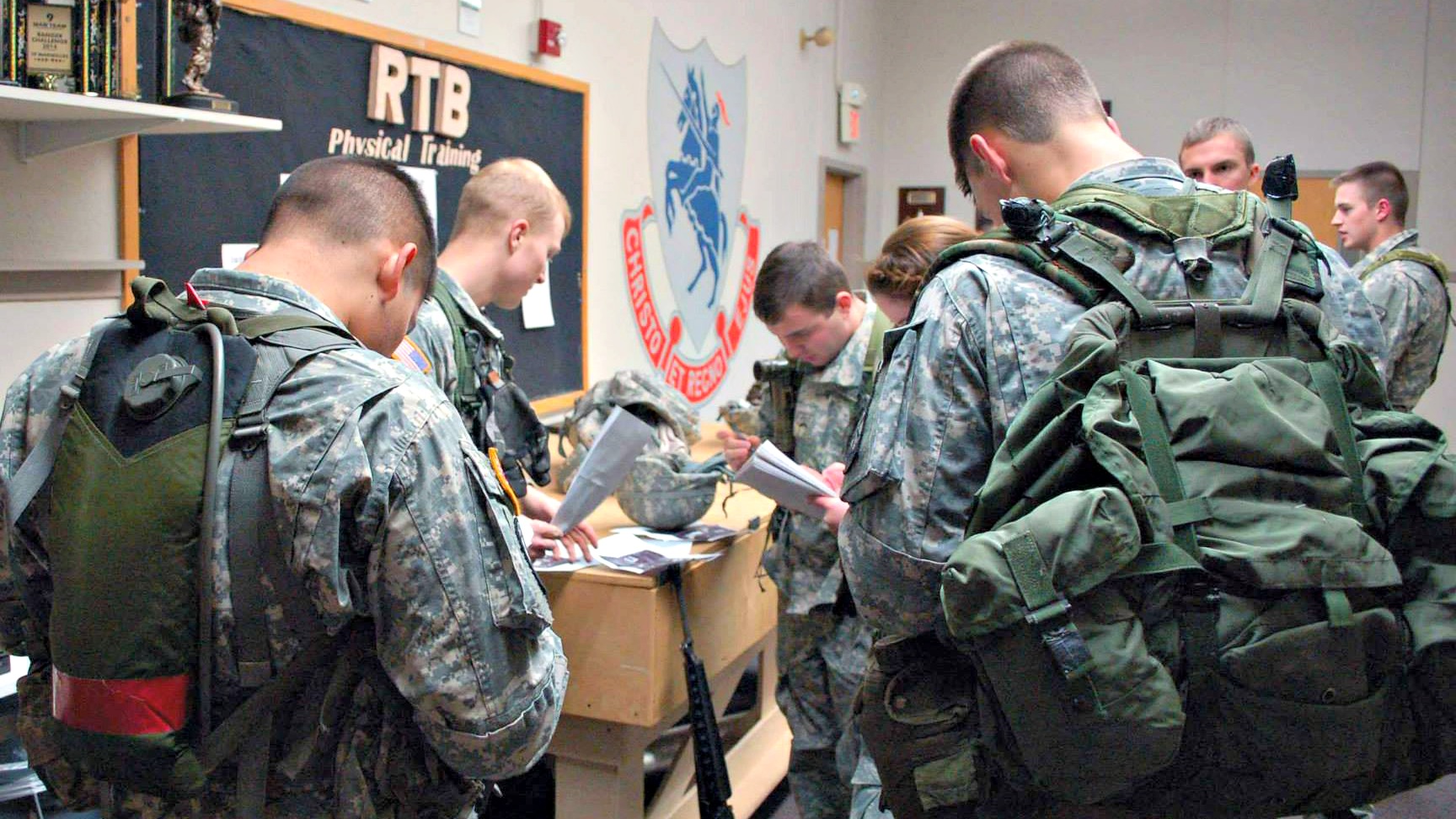Can a Christian school require the leaders of its ROTC program—who are appointed and paid by the US Army—to adhere to a statement of faith?
Wheaton College came under fire in recent weeks from a military watchdog group that noticed the Army’s listing for a Reserve Officers' Training Corps position at the suburban Chicago campus noted the candidate “must be of Christian faith.”
Now, the Army is conducting a nationwide review of policies at the 275 colleges that host ROTC programs, including Wheaton. While dozens of members of the Council for Christian Colleges and Universities (CCCU) partner with programs hosted by other schools, Wheaton is one of only a few to directly host a program. Many Catholic schools also directly host ROTC programs.
According to a Fox News report, the Army stated its system-wide review is unrelated to legal threats from the Military Religious Freedom Foundation (MRFF).
Wheaton has indicated to the Army that it requires its professor of military science, who leads the ROTC program and the department, to follow its Christian statement of faith and community standards, according to Lieutenant Colonel Jim Hoyman, who currently leads Wheaton's program. Other positions, such as assistant professors, are asked to “at a minimum respect the religious identity and mission of the college,” said Hoyman, who will serve a two- to three-year term at the discretion of the Army.
The Army job listing that prompted the MRFF response overstates Wheaton’s requirements, since assistant professors aren’t asked to profess Christian faith.
The MRFF considers Wheaton’s faith statement a violation of the constitutional requirement that “no religious Test shall ever be required as a Qualification to any Office or public Trust under the United States." In the Army Times, others point out the ROTC rule that hosting institutions not discriminate “based on race, sex (unless the school is a single sex school in its overall admissions policy), color, national origin, or religion.”
Legal experts quoted in the Times were split on whether a requirement like Wheaton’s constitutes a violation of religious freedom. Stanford University law professor Michael McConnell said meeting faculty requirements at the various universities was a neutral policy, not a religious test. Robert Tuttle at George Washington University said such a requirement essentially allows the goverment to “Christianize” an ROTC program.
Wheaton’s Rolling Thunder Battalion also includes students from partner programs at Olivet Nazarene University and Lewis University, a Catholic school, as well as from four other affiliate schools. In a promotional video, an alumnus of the program referred to it as “the only Christian-run ROTC program in the entire nation.”
Army ROTC spokesman Mike Johnson told CT, “All ROTC programs are non-sectarian. The school claims the affiliation, not the Army.” He indicated that several other private and religious schools host programs, many of them Catholic.
Baptist-affiliated Campbell University serves as the host school for an Army ROTC battalion in central North Carolina. Unlike Wheaton, its faculty members are not asked to sign a statement of faith.
“The bringing on of an ROTC commander is comparable to bringing on another department head or dean,” said Britt Davis, the university’s vice president of institutional advancement. “We’d ask that they actively support the mission of the university.”
Captain Troy Shoemaker—an officer leading a program at evangelical Union University, affiliated with a battalion at the public University of Tennessee-Martin—said he was not asked about his faith before taking the position on campus.
The current investigation does not focus on Wheaton and applies to each ROTC program, said Johnson, the ROTC spokesman. “The Army is looking at all of them. Others might have similar employment requirements.”









